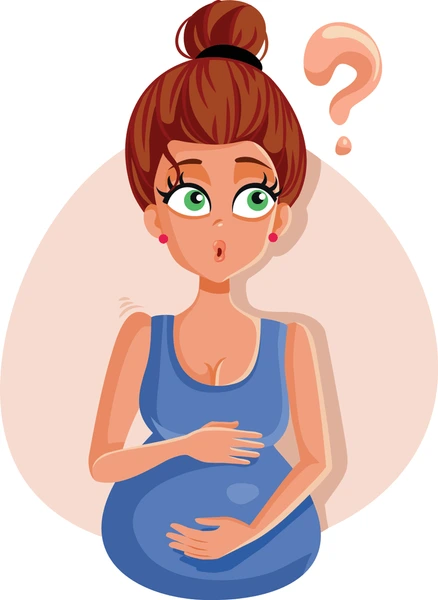When Will I Start Showing? A Guide to Pregnancy and Your Growing Belly
One of the most exciting and anticipated parts of pregnancy is watching your body change as your baby grows. As your pregnancy progresses, you may wonder, “When will I start showing?” This is a common question for expectant mothers, and the answer can vary depending on several factors. Understanding when and why your belly starts to show can help you feel more prepared as your pregnancy unfolds.
What Does “Showing” Mean?
“Showing” refers to the visible growth of your baby bump—the noticeable roundness or fullness of your abdomen that happens as your baby grows in your womb. This is when others can start to see that you are pregnant, and it’s often an exciting milestone for expectant mothers.
However, how early or late you start showing depends on several individual factors, including your body type, the position of your baby, and whether you’re having your first child.
First Pregnancy vs. Subsequent Pregnancies
If you’re pregnant for the first time, you may not start showing until later in the pregnancy, typically between 12 and 16 weeks. This is because your body hasn’t gone through the process of stretching and adapting to the growing uterus. For many first-time moms, it takes a little longer for the baby bump to become noticeable since the muscles and tissues of the abdomen are still relatively firm.
For women who have been pregnant before, you may start showing earlier, sometimes as early as 8 to 12 weeks. This is because the muscles and skin in the abdominal area have already stretched from previous pregnancies, making it easier for the baby bump to appear sooner.
Factors That Affect When You Start Showing
Several factors can influence when you’ll start to show during your pregnancy. Here are a few key elements:
- Body Type:
- Women with a leaner body type may begin to show earlier, as there’s less fat covering the uterus. For women with a bit more body weight or those who have a larger frame, it may take longer for the bump to become noticeable.
- Uterine Position:
- The position of your uterus can also affect when your bump shows. Some women’s uteruses tilt slightly backward, which might delay the visible showing of their pregnancy. Others may have a more forward-tilting uterus, which can lead to an earlier baby bump.
- Multiple Pregnancies:
- If you are expecting twins or multiples, you are likely to show earlier than if you’re carrying a single baby. The extra space taken up by two or more babies can cause your belly to grow faster and become visible sooner.
- Muscle Tone:
- Strong abdominal muscles can delay the appearance of your bump because they offer more support to the growing uterus. On the other hand, if your abdominal muscles are more relaxed or weakened, they may not offer as much support, leading to a quicker visible pregnancy bump.
- Baby’s Size and Position:
- Your baby’s size and the way they position themselves in the uterus can also affect when your belly starts to show. If your baby is in a position that allows them to push outward more, you may notice your bump earlier.
How Your Baby Bump Changes Over Time
Your belly will gradually grow as your baby develops. During the first trimester, most women do not notice much change in their body shape, other than bloating or slight fullness in the abdomen. As the second trimester begins, your uterus expands beyond the pelvis, and you may begin to see a more noticeable roundness in your belly.
By around 20 weeks, your baby bump will typically become more pronounced, and you’ll likely need to start wearing maternity clothes. This is also when your healthcare provider will begin measuring your belly’s growth to ensure your baby is developing properly.
When Should You Be Concerned?
In some cases, women may not start showing until later in pregnancy, and this can sometimes be a concern. While a late baby bump isn’t necessarily a sign of a problem, it’s important to monitor your pregnancy and consult with your healthcare provider if:
- You notice a significant lack of growth in your belly.
- Your baby’s movements seem less frequent, or you experience a sudden decrease in movement.
- You have any pain or discomfort that seems unusual or worrying.
While every pregnancy is different, your doctor can provide reassurance and check that your baby’s growth and development are on track.
Conclusion: Enjoying the Journey
The timing of when you’ll start showing is unique to every pregnancy. While it’s fun to look forward to the moment when your baby bump becomes visible to others, remember that each woman’s body reacts differently to pregnancy. Whether it happens early or late, your growing belly is a sign of the beautiful changes happening as you prepare to meet your little one.
If you have concerns about when you’ll start showing or how your pregnancy is progressing, don’t hesitate to reach out to your healthcare provider for advice and support.


